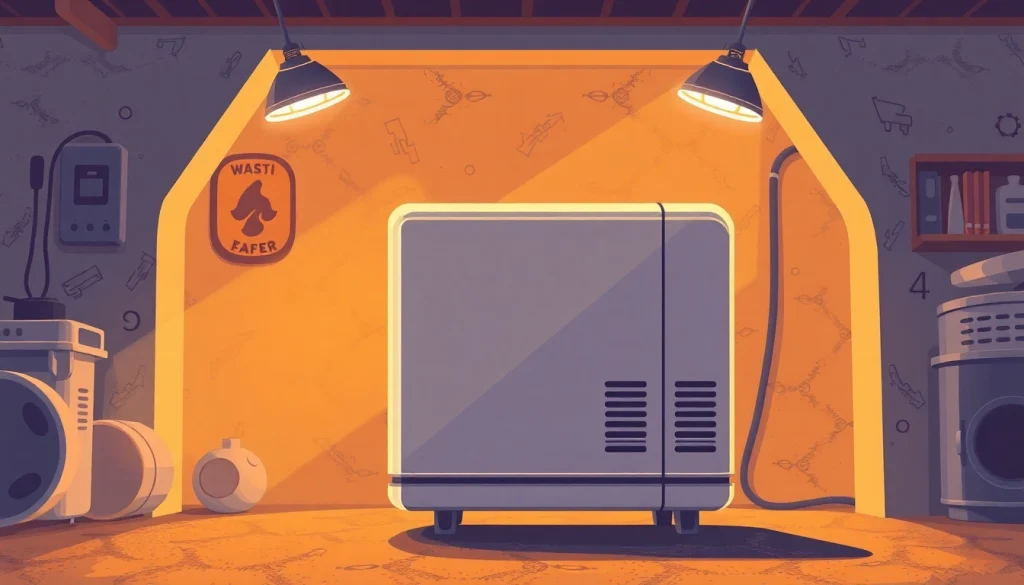
Understanding Diesel Air Heaters
As the chill of winter sets in, ensuring warmth in our living and working spaces becomes a top priority. One efficient solution that has gained popularity among various users—from RV enthusiasts to construction workers—is the diesel air heater. These robust systems not only provide comfort during the cold months but also do so with remarkable fuel efficiency and reliability. In this article, we will delve deeper into the functionality, applications, benefits, and maintenance of diesel air heaters, guiding you through everything you need to know about this indispensable heating equipment.
What is a Diesel Air Heater?
A diesel air heater is a type of forced air heating system that operates on diesel fuel. Unlike traditional electric heaters, diesel heaters rely on combustion processes to generate heat, making them particularly effective for environments where electricity may be scarce or unreliable. Their design typically includes a combustion chamber, a heat exchanger, and a fan to circulate the warmed air throughout the space. This makes them ideal for various applications including heating vehicles, RVs, trailers, industrial workshops, and more.
How Diesel Air Heaters Work
The mechanics of a diesel air heater are relatively straightforward yet efficient. When activated, the heater ignites diesel fuel in the combustion chamber. This process generates a significant amount of heat, which is then transferred to air that is drawn through the device by an internal fan. The resulting warm air is expelled into the living or working area, providing immediate and effective heating. The system is designed to ensure minimal energy loss, achieving high heating performances even in extremely cold conditions.
Common Applications of Diesel Air Heaters
Diesel air heaters are versatile and can be utilized across a broad spectrum of scenarios:
- Recreational Vehicles (RVs): Ensuring comfort during trips in colder months.
- Trailers and Containers: Maintaining optimal temperatures for goods in transit.
- Construction Sites: Providing warmth for workers and protecting sensitive materials from freezing.
- Warehouses: Ensuring a comfortable working environment and safeguarding stored items.
- Marine Applications: Heating cabins in boats or yachts.
Benefits of Diesel Air Heaters
Energy Efficiency Compared to Electric Heaters
One of the most prominent benefits of diesel air heaters is their energy efficiency. Diesel fuel has a high energy density, meaning it can produce more heat per unit compared to electricity. Furthermore, when considering fuel costs, diesel heaters often prove to be more economical over time, especially in remote locations where electricity can be expensive or unreliable.
Rapid Heating Capabilities
Diesel air heaters are designed to deliver quick heating, making them ideal for immediate use. They can often provide warmth within minutes of being turned on, which is a significant advantage in scenarios where rapid temperature changes are needed. This quick response time contributes to improved comfort and usability in various environments.
Environmental Benefits of Diesel Heaters
Modern diesel heaters are designed with environmental considerations in mind. The combustion efficiency in these units has greatly improved, resulting in lower emissions of harmful gases. Some models are equipped with advanced filters that further reduce particulate emissions, making them an environmentally conscious choice compared to older models and alternative heating options.
Choosing the Right Diesel Air Heater
Key Features to Look For
When selecting a diesel air heater, understanding the key features can greatly enhance your decision-making:
- Heating Capacity: Look for a heater with the appropriate BTU rating to suit your space.
- Control Options: Consider models that offer remote control functionality for convenient operation.
- Noise Level: Evaluate the operational noise, especially if the heater will be used in quiet environments.
- Fuel Efficiency: Investigate the fuel consumption rates to determine long-term operating costs.
- Safety Features: Look for models with automatic shut-off, overheat protection, and flame-out prevention to ensure safe operation.
Comparing Brands and Models
The market for diesel air heaters is diverse, with several reputable brands offering different models. To choose the best option, compare factors such as:
- Reviews and Ratings: Assess user feedback to gauge reliability and performance.
- Warranty and Support: Consider the manufacturer’s warranty and customer service availability.
- Price vs. Value: Balance initial costs against features and long-term savings to find the best value for your needs.
Understanding Pricing and Value Options
Prices for diesel air heaters can vary widely based on brand, features, and capacity. On average, expect to pay anywhere from $100 to over $500. While cheaper options may seem appealing, investing in a high-quality heater can lead to long-term savings through better efficiency and durability. Consider seasonal discounts, stock-up deals, and manufacturer promotions when planning your purchase.
Installation and Maintenance Tips
Professional Installation vs DIY
Installing a diesel air heater can be straightforward, but here’s a breakdown of your options:
- Professional Installation: Hiring a professional ensures the heater is set up correctly and safely. This option is advisable for those unfamiliar with installation procedures.
- DIY Installation: Many models come with detailed instructions that enable skilled individuals to install the unit themselves. This can reduce costs but requires familiarity with installation techniques and safety procedures.
Routine Maintenance Practices
Regular maintenance is crucial for ensuring the longevity and performance of diesel heaters. Key maintenance tasks include:
- Cleaning the Combustion Chamber: Regularly remove soot and buildup that can affect efficiency.
- Inspecting Fuel Lines: Check for leaks or kinks that could hinder fuel movement.
- Replacing Filters: Keep air and fuel filters clean to ensure optimal performance.
- Checking Electrical Components: Routine checks can help identify any issues before they lead to failures.
Troubleshooting Common Issues
Despite proper care, users may encounter issues with their diesel air heaters. Common problems include:
- Failure to Start: Check the fuel supply and ensure the heater is correctly set up.
- Poor Heating Performance: This could indicate clogged filters or a dirty combustion chamber.
- Excessive Noise: Inspect the fan mechanism and check for loose components that may need tightening.
User Experience and Testimonials
Real-Life Experiences with Diesel Air Heaters
Users across different sectors have found diesel air heaters to be highly effective. For instance, many RV owners appreciate the compact size and rapid heating offered by models like the VEVOR 5KW heater, which is praised for its ease of use and robust performance even in sub-zero conditions. Testimonials from construction site managers often highlight the significant productivity boost experienced when workers are comfortable and warm during tough winter jobs.
FAQs about Diesel Air Heater Usage
Common inquiries surrounding diesel air heaters often include:
- Do diesel air heaters work in extreme temperatures? Yes, many models are designed specifically for extreme temperatures, ensuring reliable heating.
- Can you sleep with a diesel heater on? Running a diesel heater overnight is generally safe as long as it is installed correctly and is properly ventilated. Make sure to consult manufacturer guidelines for your specific model.
Community Insights and Best Practices
Community forums and online groups provide valuable insights into the best practices for operating diesel air heaters. Users recommend keeping a close eye on fuel levels and using high-quality diesel to maintain combustion efficiency. Sharing information on modifications and alternative uses, such as heating outdoor spaces for gatherings, enriches experiences and opens up new possibilities for these versatile heaters.






